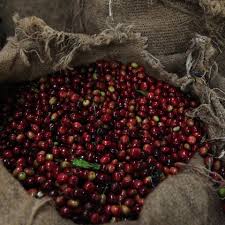Brazilian coffee characteristics, Brazilian coffee bean flavor, how to drink Brazilian coffee?

Professional coffee knowledge exchange More coffee bean information Please pay attention to coffee workshop (Weixin Official Accounts cafe_style)
Brazilian coffee refers to coffee produced in Brazil. Brazilian coffee comes in many varieties, and like other Arabica coffees, Brazilian coffee is known as Brazils to distinguish it from Milds coffee. The vast majority of Brazilian coffee is unwashed and sun-dried, and is classified according to the state of origin and port of shipment. Brazil has 27 states, 17 states produce coffee, but four of them produce the most, accounting for 98% of Brazil's total production: Parana, Sao Paulo, Minas Gerais and EspiritoSanto. Parana in the south produces the most, accounting for 50% of the total.
Brazil has been figuratively compared to the "giants" and "kings" of the coffee world. There are about 3.97 billion coffee trees, and small farmers now grow 75 percent of Brazil's coffee. Brazil has twice or even three times as many coffee producers as Colombia, which is the world's second-largest coffee producer.
Brazil in terms of natural conditions, in the tropical region, the northern part of the tropical rain forest climate, hot and humid all year round, suitable for the growth of tropical crops, coffee trees for sunny crops, sufficient sunlight for its growth conditions. Historically, Brazil has been a Portugal colony for a long time. In order to meet the needs of Western Europe, Brazil has been planting single crops for a long time and developing tropical plantation economy. Therefore, coffee in Brazil has been its pillar industry for a long time. From the market point of view, coffee and its processed products are rich in caffeine and have an exciting effect. They play an important role in the working group dominated by mental workers, so they play a huge role in modern society, so the market is broad. Brazil ranks first in coffee production in the world.
Unlike in the past, Brazil's economy is now less dependent on coffee, which accounts for only 8 - 10% of GDP. Before World War II, Brazil accounted for 50% or more of the world's coffee production, and now it is close to 30%, but the country's influence on coffee worldwide, especially on coffee prices, is significant. For example, two frosts in 1994 caused a sharp rise in global coffee prices.
Brazilian coffee taste with a low acidity, with the sweet and bitter taste of coffee, the entrance is extremely smooth, but also with a touch of grass aroma, in the fragrance slightly bitter, sweet smooth smooth, the aftertaste can make people comfortable and carefree. For Brazilian coffee, there are no special advantages, but there are no obvious defects. This kind of mild and smooth taste, low acidity, moderate alcohol and light sweetness are all mixed together. It is the best test for taste buds to distinguish them one by one. This is why many Santos fans like this coffee. It is because it is so mild and ordinary. It is suitable for ordinary roasting and brewing in the most popular way. It is the best ingredient for espresso and fancy coffee.
Important Notice :
前街咖啡 FrontStreet Coffee has moved to new addredd:
FrontStreet Coffee Address: 315,Donghua East Road,GuangZhou
Tel:020 38364473
- Prev

Why is Queen Manor of Brazil so famous? What is the trend of yellow bourbon flavor?
Why is Queen Manor of Brazil so famous? What is the trend of yellow bourbon flavor? The manor-grade yellow bourbon made in Brazil is full of sweetness, rich fruit flavor and long-lasting aftertaste, which is full of praise. The single product is used to boil in an American coffee pot or to make the spindle sweetness of espresso formula beans, which makes professional experts satisfied and listed as a necessary purchase list!
- Next

The award-winning Queen's Manor of Brazil and the recommendation of baking and cooking
Brazilian Queen Manor and Baking and Cooking recommend FazendaRainha (Queen's Manor), which covers an area of 280mu and is located in Vale da Grama, an ancient volcanic valley in Brazil. In 2011, the manor won the championship in the COE competition in Brazil. There are 200 mu of Huangbo coffee trees planted in the manor, and the undulating mountains make it impossible to carry out large-scale mechanical harvesting, so all here
Related
- Detailed explanation of Jadeite planting Land in Panamanian Jadeite Manor introduction to the grading system of Jadeite competitive bidding, Red bid, Green bid and Rose Summer
- Story of Coffee planting in Brenka region of Costa Rica Stonehenge Manor anaerobic heavy honey treatment of flavor mouth
- What's on the barrel of Blue Mountain Coffee beans?
- Can American coffee also pull flowers? How to use hot American style to pull out a good-looking pattern?
- Can you make a cold extract with coffee beans? What is the right proportion for cold-extracted coffee formula?
- Indonesian PWN Gold Mandrine Coffee Origin Features Flavor How to Chong? Mandolin coffee is American.
- A brief introduction to the flavor characteristics of Brazilian yellow bourbon coffee beans
- What is the effect of different water quality on the flavor of cold-extracted coffee? What kind of water is best for brewing coffee?
- Why do you think of Rose Summer whenever you mention Panamanian coffee?
- Introduction to the characteristics of authentic blue mountain coffee bean producing areas? What is the CIB Coffee Authority in Jamaica?

